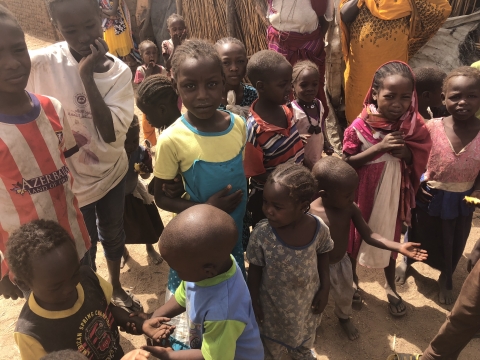
Two generals in Sudan began warring for control of the government in 2023, killing tens of thousands and displacing millions. The following article was published in the January-February 2024 issue of NewsNotes.
Peace talks are set to resume between two Sudanese generals engaged in war over government control in January of 2024. The talks will include face-to-face negotiations between General Abdel Fattah al-Burhan of the Sudanese Armed Forces (SAF) and General Mohamed Hamdan Dagalo, better known as Hemedti, of the Rapid Sudanese Forces (RSF.)
The bloody conflict began in April of 2023 as a power struggle between the official Sudanese army and the independent, rival militia that was originally positioned to be the secret police for Sudan’s long-time president Omar al-Bashir.
Generals of both forces had supported the massive nonviolent civilian protests against the authoritarian government in 2019. After the overthrow of the repressive president, the generals initially forming a civil society/military alliance. Then, in October 2021, the two generals reversed course and forcibly took control of the civil government in preference for a power sharing agreement between themselves. That tenuous arrangement collapsed in April of 2023 with civil war.
The two forces have been evenly matched, with the Sudanese army boasting an infantry twice as large and the RSF receiving foreign funding from Russia and some Arab countries that see the conflict as an opportunity for profit. This evenness would allow for an internecine struggle to last indefinitely. Peace talks have been complicated by personal dynamics and the diametric nature of the generals’ objectives.
Nonetheless, peace is essential to the ordinary people of Sudan who bear the heavy costs of war. Tens of thousands of civilians have died so far, and 6.8 million are displaced, including nearly half a million refugees who have fled into neighboring countries.
Both the RSF and the SAF have committed war crimes and atrocities such as the torture of prisoners, according to the U.S. State Department.
Additionally, there is voluminous evidence that the RSF and associated militias have engaged in ethnically motivated killings, particularly against the Masalit tribe, indigenous subsistence agriculturalists in the western Darfur region, where militias now associated with the RSF carried out a genocide at the request of the Sudanese government two decades ago.
International attention has been crucial to the peace efforts. The United States and Saudi Arabia have worked as brokers and intermediaries to the warring generals and have been responsible for the few brief humanitarian truces that allowed aid into the beleaguered nation. Peace negotiations are taking place in partnership with the Intergovernmental Authority on Development (IGAD) Eastern bloc of Africa, which provides the framework around which to negotiate. The UN has stepped up foreign aid in Sudan and to the camps where refugees have fled. The United States, European Union, and UN have imposed targeted sanctions against specific malefactors accused of war crimes.
Maryknoll Fr. Tom Tiscornia was living in Sudan until the end of 2023 and writes “Please keep Sudan and its people in your prayers that sometime in the future we will know the peace that the Lord offers.”
Faith in action
Ask Pres. Biden to support recommendations by Human Rights Watch to investigate war crimes in Sudan through the International Criminal Court and through the UN Fact-Finding Mechanism. https://mogc.info/Sudan-Action
Photo of children in Internally Displaced People camp in Darfur, Sudan
by Chansey via WikiMedia Commons, 2018. CC BY-SA 4.0
